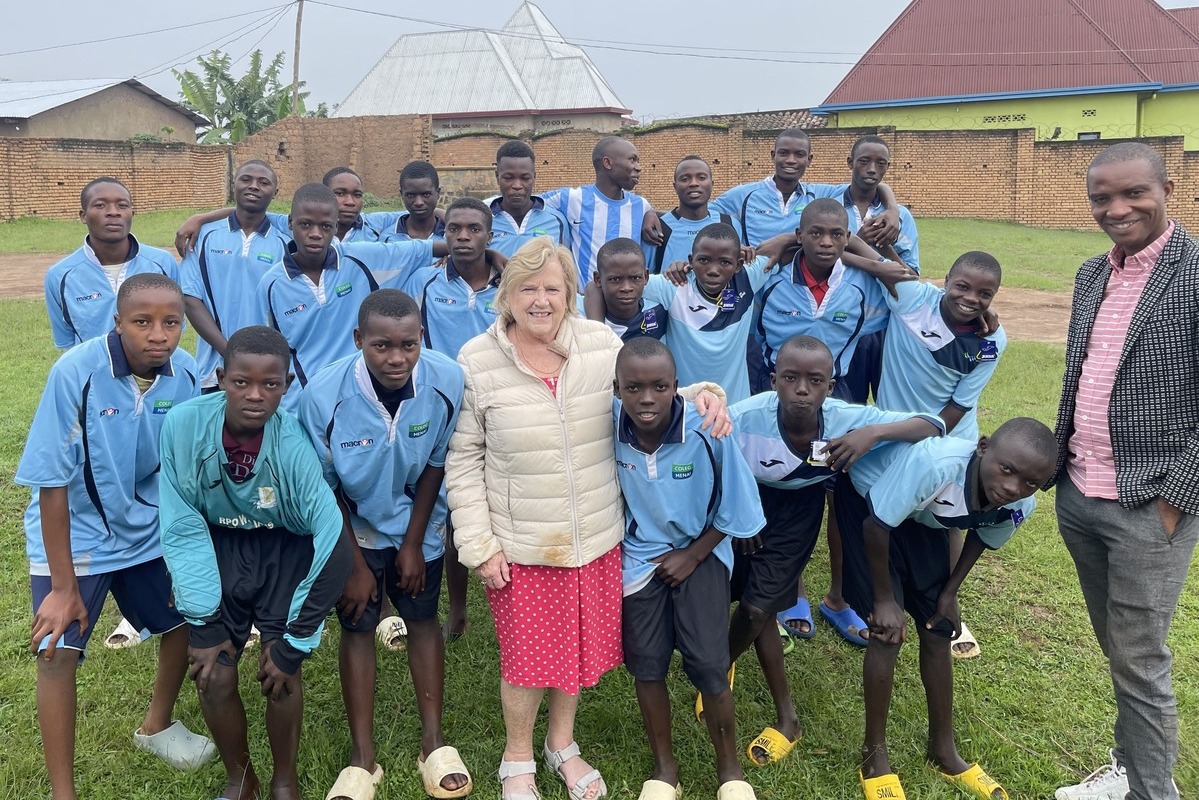Public thinking on race and racism: largest study of its kind

4 in 10 people in England and Scotland hold racist beliefs, according to groundbreaking research from Reframing Race. Yet there are reasons to be hopeful, with more than 90% of us agreeing on our shared humanity and treating others with dignity.
In the largest, most comprehensive study of its kind, Testing Times, from research-based non-profit initiative Reframing Race, illuminates mainstream views on race and racism in England and Scotland. The ultimate purpose of the research is to use new understanding of public thinking to build demand for the solutions needed to end racism.
The baseline findings of this research, commissioned by Reframing Race and collected by leading research agency Savanta, relate to a control group of 1000 people and reveal widespread racist beliefs and assumptions.
Meanwhile, other sample groups (which together add up to a participant list of 19,990 people) were shown various different messages before answering the same questions, which has allowed us to understand what type of language and information can move audiences towards a more anti-racist position.
For example, when participants in England were shown a message including specific research that proves racism in job recruitment, they were more likely to agree that all races and ethnic groups are equally as capable as one other.
Some headline findings from the control group data are as follows (with % representing ‘agreement’):
1. The results reveal a significant commitment among the general public to (entirely false) biological racial hierarchies and discrepancies.
England (nationally representative sample size: 1076 participants)
- 4 in 10 people in England think that some ethnic groups are naturally harder working than others: 41%
- 3 in 10 people in England think that someone’s race tells you something about their character: 29%
- 1 in 5 people think that some races are born less intelligent than others: 19%
Scotland (nationally representative sample size: 980 participants)
- 2 in 5 people in Scotland think that some ethnic groups are naturally harder working than others: 38%
- 1 in 5 people in Scotland think that someone’s race tells you something about their character: 19%
- 1 in 10 people think that some races are born less intelligent than others: 11%
2. However – encouragingly – the participants also hold somewhat contradictory beliefs in equality among ethnic groups and the importance of justice:
England
- Everyone in our society, regardless of race or ethnicity, has a shared humanity and should be treated with dignity:94% agree
- All of us, regardless of race or ethnicity, deserve justice to be served, including righting wrongs from the past:84% agree
Scotland
- Everyone in our society, regardless of race or ethnicity, has a shared humanity and should be treated with dignity:96% agree
- All of us, regardless of race or ethnicity, deserve justice to be served, including righting wrongs from the past:87% agree
3. There is also broad support across England and Scotland for action to tackle racial inequality, including specific policy measures in general terms.
England
- UK Government has responsibility to end racism: 94% agree
- Changing the national school curriculum to teach history with more emphasis on empire, slavery and racism: 60% agree
- Ensuring that stop and search is kept to a minimum, based only on specific, solid evidence about a crime: 71% agree
Scotland
- UK Government has responsibility to end racism:95% agree. (Scottish Government has responsibility to end racism: 94% agree)
- Changing the national school curriculum to teach history with more emphasis on empire, slavery and racism: 66% agree
- Ensuring that stop and search is kept to a minimum, based only on specific, solid evidence about a crime:77% agree
Sanjiv Lingayah, report author and Director of Reframing Race said:
“If we want to end racism and entrench anti-racism it is critical to build public demand for deep and irreversible progress. Testing Times shows there is still a way to go. The data shows significant attachment to deep-seated and debunked myths about ‘race’.
More positively, the findings show that the public can understand systemic racism and that they can be rallied around far-reaching anti-racist solutions that will help to make it possible for all people to live well.”
Nina Kelly, co-author and Director of Content and Communications at Reframing Race said:
“To see these statistics, which reveal that so many among us make deeply racist assumptions, is meaningful beyond the potentially racist behaviours of a few.
Racism is fundamentally about structures and institutions, but those structures are made by design, and those institutions are run by people. So, what people think and believe matters, and has a real-world impact on how our society is organised.
The good news – and there is plenty – is that we have some strong indications of how we might speak to people and bring more of them with us.”
Husna Mortuza, Associate Director of Public Engagement, Joseph Rowntree Foundation, said:
“As this report highlights, the public’s understanding of race and racism is complicated and inconsistent. Many people hold contradictory positions – for example believing in racial hierarchies while simultaneously supporting action to tackle racial inequality.
“In a period of heightened polarisation, finding ways to overcome these contradictions and build support for anti-racism is increasingly important. This research provides much-needed tools to understand and shape the public conversation on race and racism and we are proud to support it.”
In the full report, Testing Times explores extensive data on the power of specific messages to motivate, activate and persuade audiences to support anti-racist measures and understandings.
Download the full report here.
Reframing Race is a non-profit initiative that generates groundbreaking research and big ideas to power movement towards racial justice and race equity. www.reframingrace.org
Survey work was carried out by research consultancy Savanta in three parts. Part one was carried out in England between 31 March and 11 April 2022. Parts two and three were carried out in England and Scotland between 14 June and 14 July 2022.
The sample for the entire study was 19,990 people – representative by age, gender, region, social grade and ethnicity – of which 4,313 were in Scotland and 15,677 in England. All reported results are statistically significant.
To aid comparison the figures reported are from the Scottish and English control groups in June/July 2022. The control group findings are generated from responses to 18 questions on thoughts and feelings about ‘race’, racism and race equity. The control groups received no information before answering the questions.
The bulk of the study looked at responses to these same 18 questions after receiving one of 36 different messages about different aspects of racism, including its significance, how it works, its harms and solutions for it.











Responses